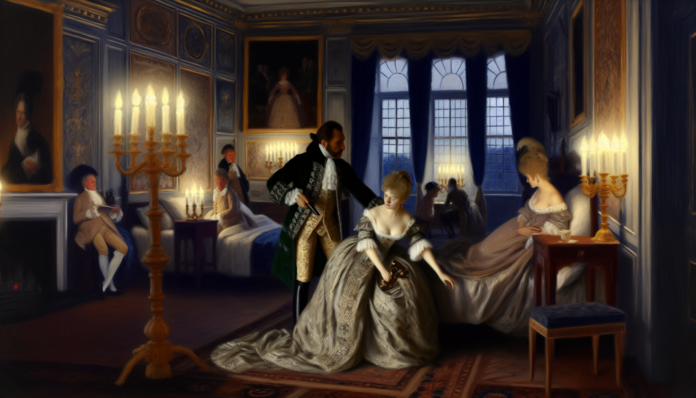Introduction
Throughout history, the royal bedroom has held secrets that could shake the foundations of kingdoms. One scandal that has captivated the public’s imagination is the infamous affair between King Edward VIII and American divorcée Wallis Simpson. This scandal not only led to the king’s abdication in 1936 but also reflected the rigid moral landscape of the time. In an era where the monarchy was deemed the epitome of virtue, Edward’s love affair challenged society’s perceptions of duty, love, and scandal.
The Scandal
The tale begins in the 1930s, a time when Britain was still reeling from the aftermath of the First World War and dealing with the Great Depression. Edward VIII’s charm and charismatic presence made him a beloved figure among the British public. However, his intense romance with Wallis Simpson, a twice-divorced American woman, would lead him to make a choice that shocked the world.
Simpson had been married to two men, and divorce was still viewed as scandalous in the same way that modern audiences might react to a high-profile celebrity affair. Edward’s feelings for Wallis were palpable; as historian Philip Ziegler noted, he found her “in a world of her own.” Their relationship blossomed away from the public eye, but rumors began to circulate, eventually reaching a boiling point when the King declared his love for her.
In December 1936, Edward made the momentous decision to abdicate the throne in order to marry Simpson, stating, “I have found it impossible to carry the heavy burden of responsibility and to discharge my duties as king as I would wish to do without the help and support of the woman I love.” His abdication created a constitutional crisis, bringing upheaval to the monarchy that had stood for centuries.
Moral and Cultural Analysis
Societal reaction to the scandal was swift and severe. The British public was divided; some sympathized with Edward’s desire for love and happiness, while others saw his actions as a betrayal of duty. The Church of England, which had been the moral compass of the nation, opposed the marriage due to Wallis’s previous marriages, leading to intense media scrutiny and public debates. Editorials crowed about his irresponsibility, and cartoonists lampooned him as a “love-struck fool.”
Conversely, today, public perceptions of such a scandal would likely differ dramatically. With a contemporary audience accustomed to celebrity infidelities and reality TV revelations, modern interpretations would likely favor individual happiness over tradition. Wallis Simpson, once vilified, might be viewed as a pioneer challenging societal norms, embodying the idea of love and autonomy over the rigidity of royal duty.
Moreover, the backlash Edward faced would be mitigated by an evolving landscape of marriage and personal fulfillment, especially given modern attitudes toward divorce and relationships. No longer would a royal’s romantic choices inevitably lead to abdications or public scandal; rather, they might be met with understanding or even adoration.
In historical context, Edward and Wallis’s affair unveils the complexities and contradictions of royal duty versus personal desire—a theme that continues to resonate in contemporary discussions about love, loyalty, and the price of personal happiness.

